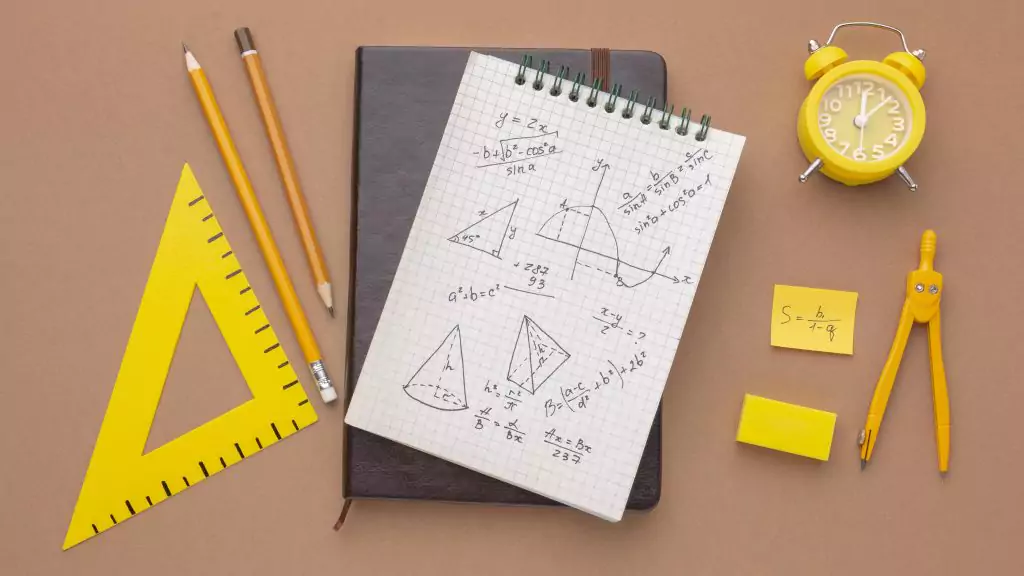
In a recently conducted survey by The Hechinger Report, hundreds of educators, parents, and students shared their experiences and insights on the state of math education in the United States. The survey revealed deep-seated concerns about access to higher-level math courses, pandemic-induced learning losses, and national competitiveness in math skills. This report unpacks these insights to better understand how America can address its math education challenges.

✅ AI Essay Writer ✅ AI Detector ✅ Plagchecker ✅ Paraphraser
✅ Summarizer ✅ Citation Generator
Key Takeaways:
- Unequal access to higher-level math courses: Many students who have the potential to succeed in math don’t get the opportunity due to racial disparities and biased tracking systems.
- Significant learning loss due to the pandemic: The shift to distance learning has led to substantial gaps in math fluency and understanding, with disastrous consequences for students, especially Black and Latino students.
- Anxiety and lack of confidence in math: Many students and parents harbor fears around math education, partly due to recent dismal test scores and the misconception that some people are simply not good at math.
Unequal Access and Racial Disparities
Dixie Ross, a veteran math teacher from Texas, highlighted the issue of unequal access to higher-level math courses. Ross, who has taught at every level of math offered in Texas public high schools, stated, “There are kids who can be successful in math, but the opportunities are not there for them,” pointing out the troubling role of race in the tracking of students. This issue is corroborated by a recent report showing that despite a passion for STEM, only 3% of Black and Latino students surveyed were enrolled in AP STEM classes.
Pandemic-Induced Learning Loss
The learning loss due to the recent pandemic has significantly impacted students’ math proficiency, with middle school students losing more ground in math than any other group. “There are a lot of holes and gaps from distance learning. The math content got shrunk down and the fluency just wasn’t there. It’s heartbreaking,” said Giavanni Coleman, a math teacher in Hayward, California.
Addressing Math Anxiety
This fear is largely driven by dismal middle school performance and the notion that some people are inherently poor at math. On the other hand, respondents from higher education mentioned their hopes of helping students both love math and understand its importance for their careers.
Ross proposes a solution to these issues: “We need to make sure kids understand that their decision to take or not take certain math classes will largely determine the economic opportunities that will be available to them.”
As America grapples with improving its math education, the survey’s findings offer a way forward. By addressing unequal access, filling the gaps caused by the pandemic, and tackling math anxiety, the country can enhance the quality of math education and foster a generation of math-confident students. The success story of Carla Edith Brayton, a former student of Ross who went from being an undocumented immigrant to a civil engineer, serves as a beacon of hope. Brayton credits her success to a teacher who believed in her potential: “Someone simply took the time to notice and believed in me. That’s what changed my life.”
Essential Concepts for Building a Strong Math Foundation
Building a robust mathematical foundation in the early stages of education is crucial to a student’s academic journey. Fundamental math skills not only facilitate understanding of complex mathematical ideas later on but also shape a positive attitude towards the subject. Here are some essential concepts that educators and parents can focus on to build a strong foundation:
- Basic Arithmetic: Understanding the four basic operations – addition, subtraction, multiplication, and division – is the cornerstone of math education. These operations form the basis for all other mathematical concepts.
- Number Sense: This involves understanding what numbers mean, how they relate to each other, and the ability to perform mental math.
- Algebraic Thinking: Early introduction to basic algebraic principles, such as understanding patterns, using symbols, and solving simple equations, can facilitate mathematical understanding later on.
- Geometry and Spatial Sense: Recognizing shapes, understanding their properties, and developing spatial reasoning are critical for interpreting and analyzing spatial information.
- Data Analysis and Probability: This covers the basics of collecting, organizing, and interpreting data, as well as understanding simple probability.
- Measurement Concepts: Understanding measurements, including length, weight, time, and volume, and how these quantities relate to real-world situations.
By emphasizing these concepts at an early age, students can develop a strong math foundation that will serve them well throughout their academic careers and beyond. This approach will not only help reduce math anxiety but also foster a love for learning and problem-solving.
Read more:
New Math Wars: The Hot Debate Over How We Teach Math
Math Essay Topics that Will Suit Your Taste
STEM Student Juggles Academics, Work, and Social Life
Follow us on Reddit for more insights and updates.





Comments (0)
Welcome to A*Help comments!
We’re all about debate and discussion at A*Help.
We value the diverse opinions of users, so you may find points of view that you don’t agree with. And that’s cool. However, there are certain things we’re not OK with: attempts to manipulate our data in any way, for example, or the posting of discriminative, offensive, hateful, or disparaging material.